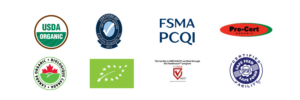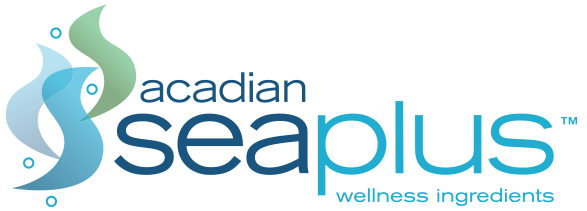North American consumers have developed a tremendous appetite for protein—and not just from poultry, red meat, fish, and eggs. People are seeking out this essential macronutrient in everything from cheese curls to toaster pastries. The goal? Giving shoppers more of the nutritional building blocks they need to create enzymes, increase energy, build muscle mass, fortify bones and cartilage, and maintain general well-being.
And the demand is only increasing. Brandwatch found a 32% increase in online mentions of “high protein” products since last year, and there’s no sign it’s slowing down. How can food and beverage companies satisfy consumer hunger for these macronutrients while keeping their costs under control?
The answer is likely through vegan sources of protein, potentially from the ocean. Here’s why the protein in seaweed like dulse should be on your radar as you seek out cost-effective yet overlooked sources to include in your formulas and products.
Red Seaweed: Your Marine, Vegan-Friendly Protein Jackpot
Legumes are the default plant protein people choose to include in their diets, but these terrestrial crops aren’t the only nutrient-dense, low-cost source of protein. In fact, the health benefits of dulse seaweed are varied, offering everything from iodine and iron to insoluble fiber.
Dulse (aka Palmaria palmata) and other red seaweeds are abundant in protein. What’s their secret? It’s all in the color! Phycobiliprotein, a type of water-soluble protein, not only supplies algae with the ability to capture light energy for photosynthesis, but also imbues dulse with its characteristic reddish-purple hue. It offers visual and nutritional benefits.
What’s even better is this natural process results in around 20 grams of protein per 100 grams of dulse. With adults needing about 0.8 grams per kilogram of body weight, the average 199-lb American man or 170-lb American woman gets about just over a quarter or over one third, respectively, of their daily needs from 100 grams of this red seaweed. Not a bad deal for consumers or formulators.
Knowing You’re Getting the Best Value
With the protein in seaweed offering a promising nutrient source for formulators, the question is how do you get the most out of each order? By sourcing your ingredients from the right value-added seaweed company.
It’s the reason why numerous companies in the food and beverage industry choose Acadian SeaPlus™ for their dulse. In addition to our new cultivated dulse offering, we continue to provide wild-harvested dulse. We closely study and employ sustainable harvesting methods so we can maximize the level of protein in our products while encouraging seaweed to regrow and flourish for future generations.
Once we harvest the seaweed from coastal waters, we maintain our high standard of quality with the following certifications:

With all the care we put into every ounce of seaweed, you can confidently and reliably give your customers their fill of the protein they crave.
Can the protein in seaweed drastically increase the amount of this key macronutrient in your products? Reach out to the Acadian SeaPlus™ teams and we can show you the difference dulse makes.
Contact Us
Related Articles
What’s Your Diet Missing? 4 Health Benefits of Dulse Seaweed
The Brown Seaweed Supplement Benefits That Boost Your Gut Health, Mental Health and More
Struggling with Anxiety & Depression? These 5 Foods Can Help You Stay Resilient
